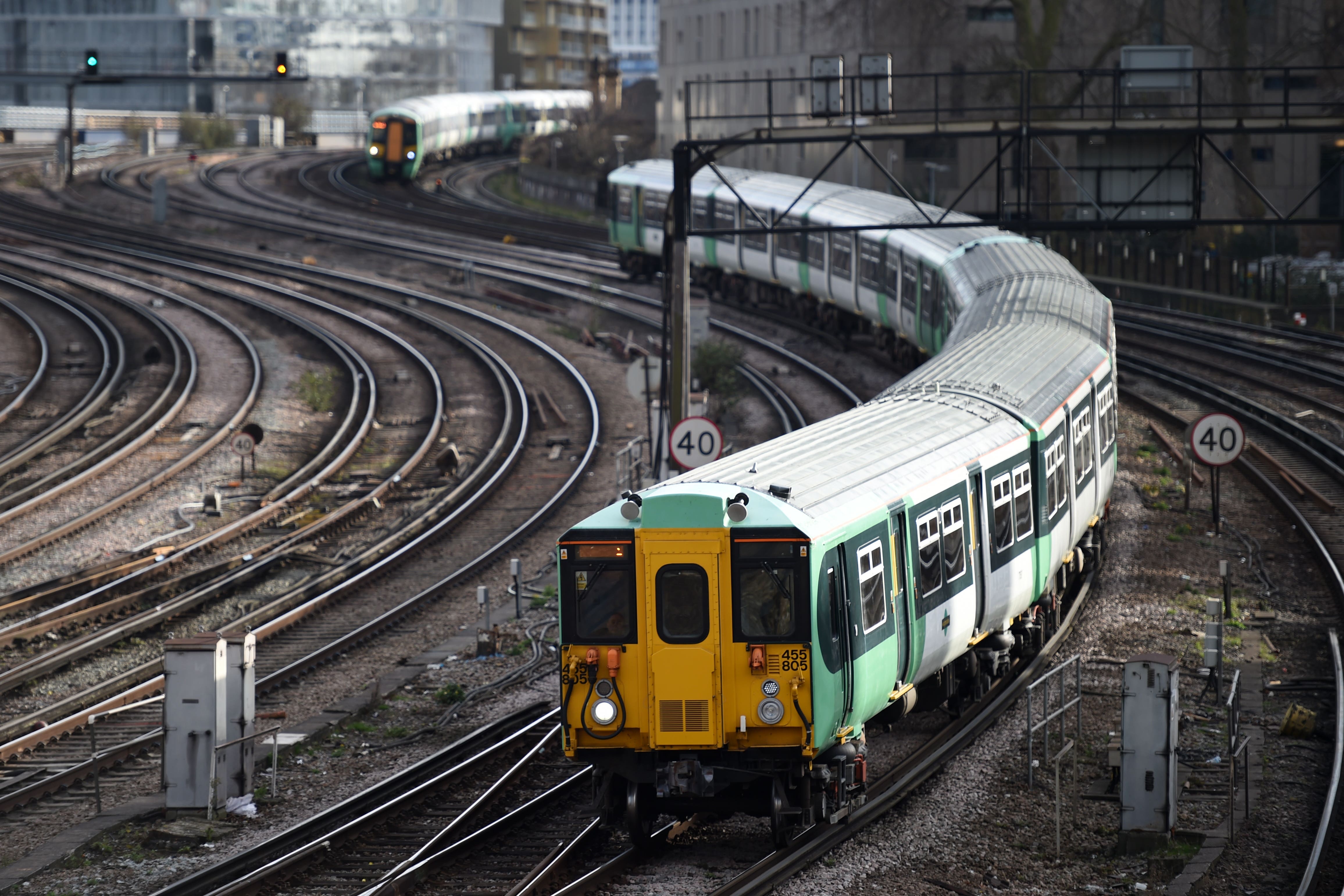Bills to overhaul rail and bus services in King’s Speech
Effectively renationalising all train operations was a long-standing pledge for Labour while the party was in opposition.

Legislation to overhaul Britain’s railways and England’s buses was included in the King’s Speech.
Bills to bring train operators into public ownership, create new public body Great British Railways (GBR) to oversee the rail network, and give all English councils new powers to franchise local bus services will be introduced.
The Government said it is also repurposing the existing High Speed Rail (Crewe-Manchester) Bill, whose progress was paused in October last year when then-prime minister Rishi Sunak axed plans to extend HS2 north of Birmingham.
The Bill will provide powers to construct new rail infrastructure to improve east to west journeys across the North of England.
Effectively renationalising all train operation was a long-standing pledge for Labour while the party was in opposition.
The Railways Bill will ensure appointing a public sector train operator as existing contracts expire will be the default position rather than a last resort.
The Government said this will avoid the need to pay compensation to current operators and will save taxpayers millions of pounds each year that are paid out in fees to private train companies.
It added that the first contracts will be brought into public ownership as soon as possible once the legislation is in place.
Four of the Department for Transport’s rail contracts are already operated in the public sector after private companies were stripped of control because of poor performance.
They are London North Eastern Railway, Northern, Southeastern and TransPennine Express.
Of the remaining 10, their contracts can be ended at various points between September 2024 and October 2027.
The overhaul of Britain’s railways also includes the Railways Bill, which will lead to the introduction of GBR, first proposed by the Conservative government in May 2021.
This will bring together the management of rail infrastructure and delivery of passenger services into a single public body.
GBR will be tasked with simplifying fares and rolling out innovations such as automatic compensation and digital ticketing across the network.
A shadow GBR will be set up aimed at uniting key rail industry bodies ahead of primary legislation being passed.
The Better Buses Bill is aimed at giving local authorities in England the power to franchise local bus services, by removing barriers that mean only metro mayors can currently do this.
This will enable local leaders to deliver better bus networks reflecting the needs of communities relying on them, according to the Government.
The Bill will also attempt to provide enhanced accountability of bus operators, and give councils more control and flexibility over bus funding.
The Government said it is not reversing Mr Sunak’s decision to cancel Phase 2 of HS2 north of Birmingham.
Carrying over the High Speed Rail (Crewe-Manchester) Bill involves providing powers for projects designed to produce major connectivity improvements in the North, such as new stations at Manchester Piccadilly and Manchester Airport.
Meanwhile, the Sustainable Aviation Fuel (Revenue Support Mechanism) Bill is designed to encourage investment in greener jet fuel plants across the UK.
Sustainable aviation fuel (Saf) is made from sustainable sources, meaning its production involves using about 70% less carbon than conventional jet fuel.
It is currently several times more expensive to produce than conventional jet fuel.
The Bill will involve a revenue certainty mechanism for Saf producers who invest in new UK plants.
Bookmark popover
Removed from bookmarks